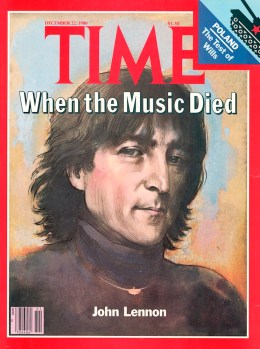
ISSUE DATE: Dec. 22, 1980
THE BUZZ:
For all the official records, the death would be called murder. For everyone who cherished the sustaining myth of the Beatles—which is to say, for much of an entire generation that is passing, as Lennon was, at age 40, into middle age, and coming suddenly up against its own mortality—the murder was something else. It was an assassination, a ritual slaying of something that could hardly be named. Hope, perhaps; or idealism. Or time. Not only lost, but suddenly dislocated, fractured.
The outpouring of grief, wonder and shared devastation that followed Lennon’s death had the same breadth and intensity as the reaction to the killing of a world figure: some bold and popular politician, like John or Robert Kennedy, or a spiritual leader, like Martin Luther King Jr. But Lennon was a creature of poetic political metaphor, and his spiritual consciousness was directed inward, as a way of nurturing and widening his creative force. That was what made the impact, and the difference—the shock of his imagination, the penetrating and pervasive traces of his genius—and it was the loss of all that, in so abrupt and awful a way, that was mourned last week, all over the world. The last Day in the Life, “I read the news today, oh boy …”
Read the full story here
